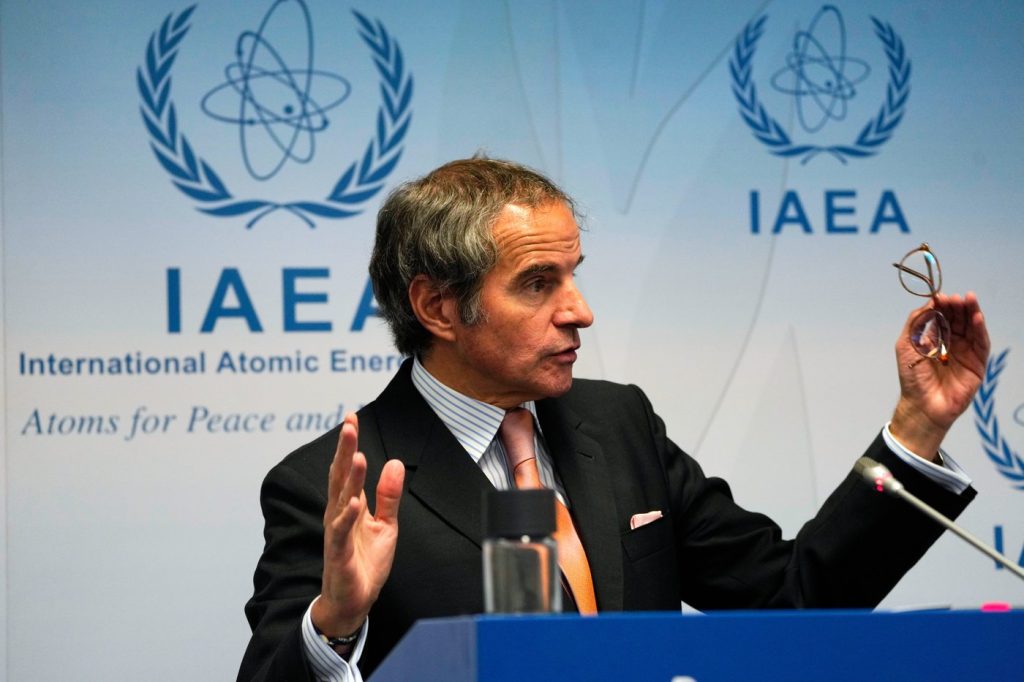DUBAI, United Arab Emirates (AP) – The Iranian Foreign Minister, Abbas Araghchi, had a phone conversation early Sunday morning with Rafael Mariano Grossi, the head of the International Atomic Energy Agency (IAEA), following a report that indicated Iran is further increasing its stockpile of uranium enriched to near weapons-grade levels. This discussion comes amidst rising concerns about Iran's nuclear activities and its implications on global security.
In his communication via Telegram, Araghchi emphasized Iran's "continuous cooperation" with the IAEA. The agency did not immediately respond to requests for comments regarding the phone call. A confidential IAEA report, which was reviewed by the Associated Press, expressed serious alarm, noting that Iran is now the only non-nuclear-weapon state producing uranium enriched to such high levies.
During the conversation with Grossi, Araghchi stressed that all of Iran's nuclear operations are conducted within the framework of international agreements and are under the scrutiny of the IAEA. However, the IAEA has described Iran's cooperation as "less than satisfactory," particularly concerning uranium traces found at several undeclared sites in the country.
In a veiled warning, Araghchi requested that Grossi ensure that certain international parties do not misuse the agency for political purposes against Iran. This statement signals Iran's awareness of the geopolitical tensions surrounding its nuclear program. Following the publication of the IAEA report, European nations may consider additional measures against Iran, potentially escalating tensions between Iran and the West.
Kazem Gharibabadi, Iran's deputy foreign minister, released a detailed response on Sunday refuting many of the report’s assertions. He highlighted that out of the IAEA's 682 inspections of 32 countries, 493 were conducted in Iran alone. Gharibabadi asserted, "So long as a country’s nuclear activities are under the IAEA’s monitoring, there is no cause for concern," and reiterated that Iran is neither pursuing nuclear weapons nor possesses any undeclared nuclear materials or activities.
The IAEA report stated that as of May 17, Iran has accumulated 408.6 kilograms (900.8 pounds) of uranium enriched up to 60%, representing an increase of nearly 50% since the last report released in February. The report noted that this level of enrichment is a technical step away from weapons-grade uranium, which is enriched to about 90%.
This phone conversation between Araghchi and Grossi took place shortly after Omani Foreign Minister Badr al-Busaidi visited Tehran on Saturday. Al-Busaidi is mediating ongoing U.S.-Iran discussions and presented the latest U.S. proposal aimed at curbing Iran's nuclear program in exchange for the potential easing of severe economic sanctions imposed by the U.S. These sanctions have been a significant point of tension in U.S.-Iran relations for nearly 50 years. Recent rounds of talks, including the fifth round held in Rome last week, have yielded "some but not conclusive progress," according to al-Busaidi.











